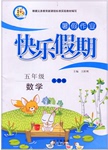题目内容
Long long ago, a young man found a spring of delicious clean water while he was going through the desert. He brought some back to the oldest man in his village, who had been his teacher before. After a four-day journey he sent the water to the old man who took a deep drink, smiled warmly and thanked his student for the sweet water. The young man returned to his village happily. The next day, the teacher let another student taste the water. He spat it out, saying it was awful. It went bad because it had stayed in the old leather container(皮革容器) for so many days in such hot weather. The student asked his teacher why he pretended(假装) to like the awful water. The teacher replied, "You only tasted the water. I tasted the gift. The water was simply the container for love and kindness. And nothing could be sweeter than these."
I think we understand this lesson best when we receive small gifts of love from very young kids. Whether it's a slice of bread or a piece of colored paper, the natural and right response(反应) is to show our thanks and happiness because we get love from the gift.
To show our thanks doesn't always come naturally. Unfortunately, most children and many adults only see the thing itself. They never feel the meaning of the thing. We should tell ourselves and teach our children about showing thanks and happiness to the persons who give the gifts from their hearts because gifts from the heart are really gifts of the heart.
1.Where did the young man find the water?
A.In a spring. B.In a river. C.In a lake. D.In a village.
2.How long did the water stay in the old leather container?
A.Six days. B.Five days. C.Four days. D.Three days.
3.What does the word “replied” mean?
A.smiled B.cried C.answered D.got angry
4.According to the passage, what is the right response when we get gifts from others?
A.We eat it up at once.
B.We only see the thing itself.
C.We think about the meaning of the bread.
D.We usually show our thanks and happiness naturally.
5.What does the writer want to tell us?
A.We should never receive anything from others.
B.We should show thanks and happiness when we get the gifts from the heart.
C.We should pretend to love the things given by others all the time.
D.We should give gifts from our hearts.
1.A
2.B
3.C
4.D
5.B
【解析】
试题分析:这篇短文主要通过一个小故事,给我们讲述了一个重要的交际问题,那就是当我们受到礼物时,应表示感谢和满意。
1.根据第一段a young man found a spring of delicious clean water 描述,可知选A。
2.根据第一段After a four-day journey …… The next day, ……He spat it out, saying it was awful. It went bad描述,可知水是在第五天后变质,故选B。
3.联系前一句及老师的答语,可知此处指的是老师回答说,故选C,回答。
4.根据短文第二段描述,可知当我们受到别人礼物的第一反应应该是表示我们的感谢和发自内心的满意,故选D。
5.根据最后一段We should tell ourselves and teach our children about showing thanks and happiness to the persons who give the gifts from their hearts because gifts from the heart are really gifts of the heart.及上文描述,可知作者主要是告诉我们,当我们受到礼物时,应表示感谢和满意。故选B。
考点:关于交际问题的议论文阅读
点评:本文浅显易懂,各个小题都能在文中找到适当依据。只要认真阅读短文,注意前后联系,就能顺利完成阅读。文章所设试题主要考察细节查找,做题关键是找出原文的根据,认真核查小题和原文的异同。

 一诺书业暑假作业快乐假期云南美术出版社系列答案
一诺书业暑假作业快乐假期云南美术出版社系列答案| 完型填空 | ||||
| A thirsty bee went to a river to drink. As it was drinking, the bee was 1 away by the running water. A kind bird saw that the bee was in 2 . It picked 3 off a tree and threw 4 into the water in front of the bee. The bee climbed 5 the leaf, and it was brought 6 to the land. The bee thanked the bird a lot and then 7 away. Not 8 that, the bird was sitting 9 the branch(树枝) of a tree. It did not know that a man was shooting(射击) at it. But the bee saw 10 the man was doing. So it flew into the man’s 11 and stung (刺蜇) him. The 12 in the man’s eye was so great that he was not able to 13 the bird, and the bird flew away. 14 ways, the bee, 15 life had been saved by the bird, was able to save the life of the bird. | ||||
|
